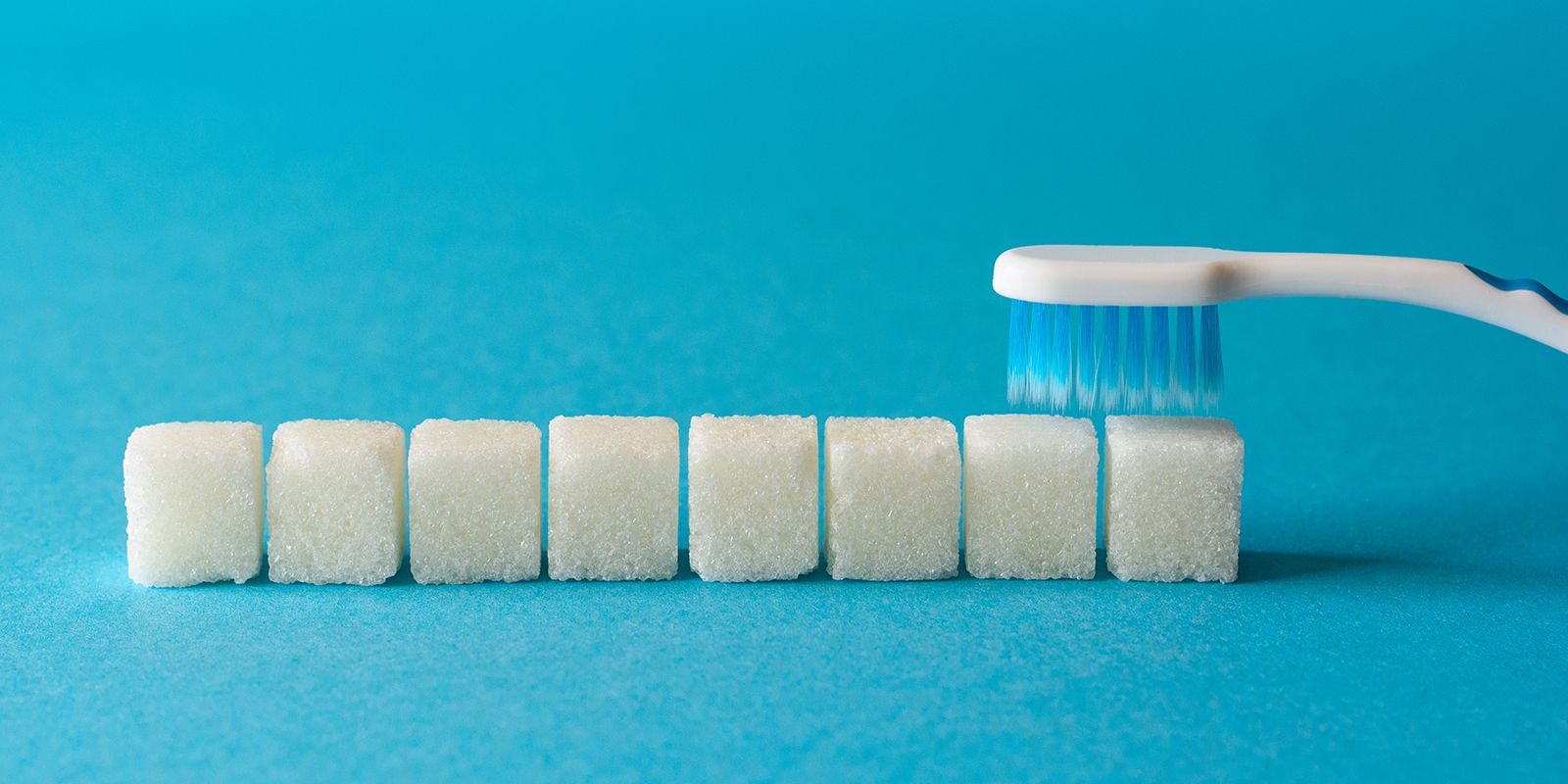Sugar, so tasty, sweet, and satisfying, but have you ever wondered, “Is sugar bad for my teeth?” The short answer is yes. Sugar is fuel for bad bacteria and may lower the Ph in your mouth leading to tooth decay.
Bad Bacteria in Your Mouth
Bad bacteria found inside your mouth include; Streptococcus mutans and Streptococcus sorbrinus. Both of these types of bacteria feed on sugar, in fact, they love sugar! When these bacteria eat the sugar it forms dental plaque, which is a sticky film on the teeth which causes tooth decay and if not removed can harden.
Ph Balance of Your Mouth
When you eat sugar it changes the Ph of your mouth. When the Ph is less than 5.5 the acidity starts to dissolve minerals and destroy the tooth’s enamel. This may result in small holes or erosions. Over time, they become larger and a cavity forms.
Plaque to Tartar
If dental plaque is not removed by brushing, chewing gum, or washing it away with water over time it can harden into tartar or dental calculus. This hard substance can lead to gum disease, discoloration, and several other oral health problems. Tartar is not able to be removed at home, you must visit a dentist. They will then use special instruments to remove this hardened build-up.
Avoiding Sugary Foods and Drinks
We understand that sugar is in everything and completely avoiding this sweet substance is unavoidable, however, there are steps you can take to keep your smile healthy.
- Always drink water after eating – drinking water can help wash away sugar from the teeth and decrease plaque build up
- Chew sugar free gum after eating or drinking anything other than water
- Brush after eating or drinking
- Avoid snacking and sipping beverages
- Drink plenty of water even when not eating or drinking other beverages
- Floss after eating
- Limit sugar – avoid heavily processed sugary foods like candies, sodas, etc.
Sugar – The Takeaway Message
Yes, sugar is bad for your teeth, but you can take the following steps from above to help combat the negative effects it may have on your teeth. As always, consult your dentist or hygienist if you have any additional questions!





